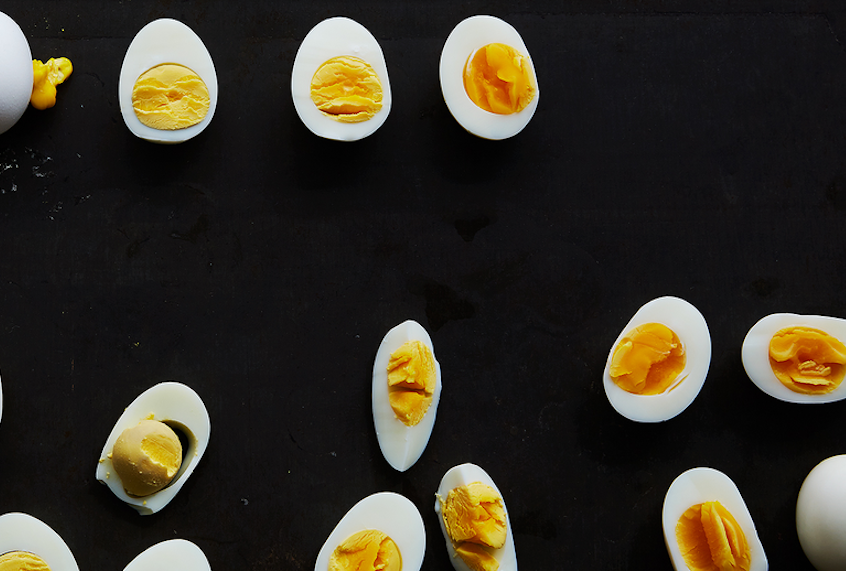Google “how to hard-boil eggs” and more than 28 million (digital) hands will fly into the air, ready to offer advice. Amongst the first page of search results alone, you’ll find responses as varied as “place into boiling water and simmer for 10 minutes” to “start with cold water and bring everything to a boil together” to “steam over a pot of boiling water for about six minutes.” And that’s not even to mention the peeling.
Cookbooks offer no respite. My favored tome “How to Cook Everything,” courtesy of Mark Bittman, would have you place your eggs in a pot of room temperature water two-thirds full and bring it to a boil, before turning off the heat, covering, and allowing everything to sit for nine minutes. (Bittman writes in his headnote, “My method of hard-cooking eggs . . . has changed over the years.”) Meanwhile, J. Kenji López-Alt’s James Beard Award–winning “The Food Lab” suggests (after many, many rounds of tests) lowering eggs into boiling water for 30 seconds, then adding ice cubes, reducing to a sub-simmer, and cooking for 11 more minutes.
So what’s a person with deviled eggs on the brain to do? I turned to two New York City chefs — each at the helm of a prolific brunch restaurant—to get the the bottom of my hard-hitting questions about hard-boiled eggs. Here’s what Nick Korbee (co-founder of Egg Shop and author of “Egg Shop: The Cookbook“) and Jason Hua (chef at The Dutch) had to say:
* * *
To start cold, or at a boil?
Hua and Korbee both agree: gently lower eggs into water that’s already at a boil for the best results, rather than bringing the eggs and cold water to a boil together. (As Sarah Jampel points out, Korbee touts this method in his cookbook as well.)
“I have noticed the egg white sticks to the shell when I start from cold [water],” says Hua. López-Alt explains this phenomenon on Serious Eats: “Slow-cooked egg whites bond more strongly with the membrane on the inside of an eggshell.”
Depending how many eggs you’re working with, Korbee suggests boiling enough water to fully cover them by at least an inch. He adds that he somewhat superstitiously chooses to add white vinegar, salt, and a pinch of baking soda to the water before bringing it to a boil, for extra peeling insurance.
* * *
Timing is everything
Once you’ve gently lowered your eggs into boiling water — and remember, there should be enough water to cover the eggs by at least one inch — let them cook for 10 to 11 minutes, depending on size.
In her battle-testing of Korbee’s preferred method, Jampel noted that his 10-minute boil produced “perfect specimens.”
For a more medium-boil (his personal preference), Korbee suggests an eight-minute cook time.
* * *
Peeling 101
After boiling your eggs, the name of the game is to immediately transfer to an ice bath — aka a bowl filled with ice and some cold water—to stop the eggs from carry-over cooking and to chill them as quickly as possible.
“I have tried every method out there, and this is the best for peeling and consistency,” says Korbee, who lets his hard-boiled eggs sit in the ice bath for five minutes before peeling.


